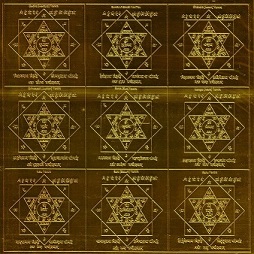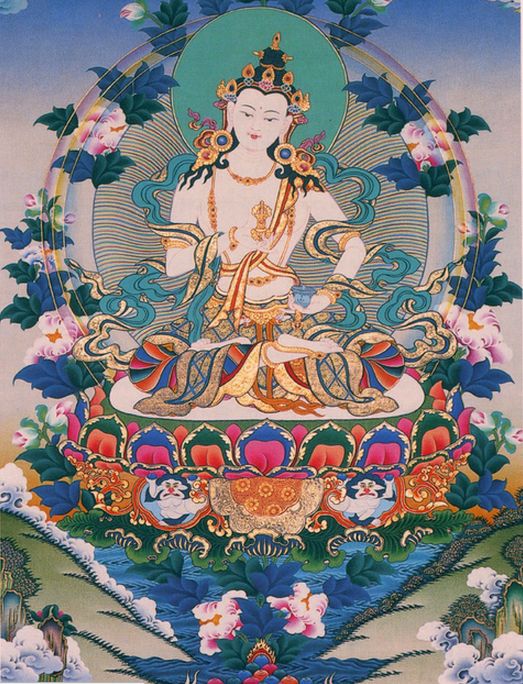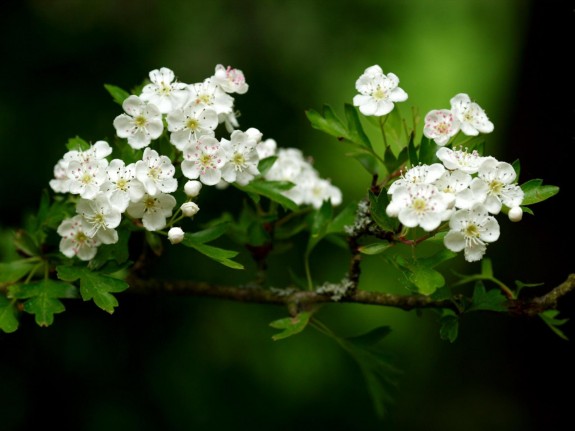
Vimshottari Dasha - Rashi - Gochara - Bhava - Graha - Ratna - Nakshatra - Amsha - Karaka - Varga - Bala

- Surya for Tula nativity
- Chandra for Tula nativity
- Mangala for Tula nativity
- Budha for Tula nativity
- Brihaspati for Tula nativity
- Shukra for Tula nativity
- Shani for Tula nativity
- Rahu-Ketu for Tula nativity
Tula indriya-lagna Friendly and Non-Friendly Domain Rulerships
OM shum Shukra ya namah
OM dram drim draum sah Shukra ya namah
OM sri ram dasrathaye namah
OM tatva niranjnaya tarakaramaya namaha
NavaGraha AdhiPati

OM hrim krom aim grhanathaya budhaya svaha
Rulership Portfolio
measured from
lagna = ligne = line of
तुला
Thauli - Thula - Thulam
Zugos - Juka - Yugya
Vanika - Vaṇija - Baṇija
Dhatah
Dvi
Mānuṣa
Paṇana
with Sacred Jewels general recommendation for Tula-born Learners


Budha = Dharmesha-9 + ruler-of-12
measured from radical Tula indriya-lagna or Tula-Chandra; partner-effects from Thula navamsha
Loss of regulatory career, priestly roles, intellectualized meditation and reflection, religious writings
Budha = philosophical wisdom, public religion (9) + distant lands, private religion (12)
Budha controls Guru's bhava of religious practice = 9 + 12.
-
Great matters of wisdom teachings and ceremonial ritual (9) and human imagination in sanctuary meditation (12) become the subject of Budha's ongoing (and often published) conversations.
dharmesha -9 Budha = a natural professor. What one professes = depends on the bhava and rashi (et al) Budha.
the Learner may be prone toward religious, moral, and philosophically reflective writings per the placement of Budha by rashi and bhava.

Paradigm of Belief * Catechism * Doctrine
Conversational and sexual Budha = generally beneficial, although Tula-1 = rather busy mentally. Guru-oriented deeply interiorized spiritual practice might not be available to Budha the Administrator. Budha may give a detailed explanation and instruction in sacred matters (9) without much priestly [Guru] engagement . Often a lay professor of religion or other non-priestly expert in liturgical-spiritual practice.
On the one hand, talkative Budha Dharmesha-9 + ruler-of-12 = Tula-1 = particularly gifted in theological discourse and unusually capable of describing the private states of meditation and prayer.
The Learner may have some potential to be a religious teacher although most likely in a facilitator rather than a guru role, unless Budha is very strong svakshetra in 9 or uttama in 12. The Learner may be well versed in a variety of religious practices and belief systems due to bidding bantering Budha's natural intellectual curiosity.
On the other hand, Budha is largely an a-moral graha, which is to say that Budha can always see things from the other fellow's point of view. The Kumara is above all an agent of narrative discourse, conversation, and the exchange of information. Therefore Tula-1is less suited to the more dogmatic and ritualized style of moral teaching which has a definite right and wrong.
However, should Shani be strong, the Learner may indeed enter into the religious professions in a priestly role and ascend the religious hierarchy in the same way that Thula ascends any other hierarchy: by building relationships, acquiring educational credentials, and assuming some professorial or other indoctrinating roles, and entering high leadership positions at times of significant institutional fluctuation (Chandra being karmesha -10 , tula-1 must ride the waves of psychic shift as one assumes and releases social rank and entitlement.)
However, Budha as ruler of 12th-from-10th is a negative influence for career, and Astrong Budha is often the signal of a weak career for Tula-1.
Even if other factors promote one's professional entitlement to impose an orderly environment on those below (10), periods of Budha indicate a waning of one's power to act influentially in leadership roles because the native becomes absorbed in religious thought.
Tula-1 chats blithely about matters of religious principle and moral observance which many find too sacred to express with words, while skillfully articulating the imaginative and divinatory processes of the deep subconscious which normally remain protected in the privacy of meditation halls or prayerful silence. Ironically, tula indriya-lagna is better equipped to talk about public religion than to practice it, since Budha deprives the Learner of the respect accorded to the pious.
Career:
as planetary patron of both 3rd-from-10th and 12th-from-10th, Budha has an upachaya effect on career. Budha bhukti that occur during the adolescent and young-adult years are generally uncomfortable career-wise. Comfortable and pleasing results begin to accrue in regard to the Learner's ability to communicate in positions of leadership and dominion, but only with the passage of time.
-
3rd-from-10th = The Learner may have more skills for talking about decisions than for actually making decisions. Much energy dissipated (12) in petty debates.
-
12th-from-10th = the great irony of priestly dharmasthāna = as 12th-from-10th, dharma bhava drains energy away from public leadership roles in the human world, so that the Learner may study philosophy and deliver wisdom teachings from the divine world. dharmesha -9 grants access to higher knowledge, but Dharmesha-9 generally drains the conventional career [10], eroding the bourgeois reputation.
For Tula-born Learners, bantering Budha's engagement with religious practice and clairsentient intuition is not always completely dysfunctional.
Because Budha the Explainer = lord of dharmasthāna, Tula-born Learners often display a natural talent for delivering detailed explication and instruction in religious studies such as critical social ethics, theology, comparative religions, or historical patterns of priestly ritual.
Indeed if Guru happens to be the lord of 10th navamsha, the Tula-born Learner may somewhat ironically find oneself teaching in the problematic university and temple environments, because a well-placed Budha is capable of explaining almost anything!
In particular for Tula-born Learners , dharmesha -9 Budha is gifted in the development of philosophical argumentation in any of the university intellectual disciplines.
-
[uchcha-Budha] in 12 or svakshetra Budha in 9 can mature into an excellent instructor of the philosophy and history of religion, anthropology of religion, social ethics, history of consciousness, intellectual history, exegesis and critical literary analysis of sacred scripture, and similar analytical specialties which problematize the human experience of temple discourse, spiritual conscious, and divinatory prayer.
[uchcha] Budha in 12 is particularly gifted at explaining, instructing, and cataloging processes of dream interpretation, comparative meditation practice, clairsentient perception and reporting, and perceptions which occur on the boundary between life and death.
Education, belongingness, and properties
as ruler of both 6th-from-4th and 9th-from-4th, Budha gives mixed results in regard to social credibility, acceptance, and shelter. Thula natives are strongly associated with education through [Yogakaraka] bandesha-4 +vidya-pati-5 Shani, but Budha the karaka for personal speech, gesture, and written discourse is not always helpful in Tula's educational pursuits.
During periods of impressionable Budha, transits to bhava-9 will make a big difference in the educational, social security, and property-owning outcome. E.g., Shani transit through dharma bhava during a Budha bhukti could abort the conventional education (4) while enforcing pursuit of higher truths (9).
-
span 6th-from-4th = bhava-9 is a natural adversary of bhava-4. bhava-4 represents the foundational education in cultural manners, the folkways customs and established cultural norms; whereas bhava-9 represents the higher education in the relationship of humans to the divine. bhava-4 requires exclusive and boundaried habits, folk customs and established cultural norms; while bhava-9 demands inclusive, unbounded freedom. Budha as dharmesha -9 is an agent of conflict toward the natural restrictions of bhava-4.
-
9th-from-4th = Budha's control of bhava-12 provides a path to moksha (freedom) from the basis of teaching, parenting, caretaking, and patriotic protection of the land. The liberation from ethnonationalism and parochialism occurs not via the social personality but through the dreamlike, reflective and meditative perceptions on the many, many paths (individual cultures, nations, and tribes) which lead up the same mountain.
Vitality, social Personality and Physical Appearance
as planetary patron of both 12th-from-1st and 9th-from-1st, Budha tends to make the Tula indriya-lagna Learner a bit mentally apathetic toward the body and its appearance. The native is curious [Budha] about religion, and if Budha is empowered the Learner may undertake a university study (9) of religious phenomena (dharma) such as belief systems, orders of priesthood, etc. Dharmesha-9 brings the amazing education of travel. As they say in Nepal,"one road is worth 1000 schools ".
-
12th-from-1st = on the basis of one's own body and vitality, Budha sets in motion a drain of life force which sucks out prana from The earthen body and pumps it back into the astral body. Spirit communication consumes most of the life force energy.
-
9th-from-1st = On the basis of one's own body and vitality, Budha brings wisdom teachings through world travel particularly to holy places (pilgrimage+ ruler-of-12 Budha) and association with world teachers.
Marriage, partnership, peer and Advising Relationships
as ruler of both 3rd-from-7th and 6th-from-7th, Budha is a major trouble-maker in human partnerships, and a general miscreant in marriage. Tula-1 is advised to gain consciousness of a past-life tendency to criticize and argue in peer-to-peer relationships.
Tula-1 may overly rationalize relationship alliance choices, constructing a valid logical argument for the viability of partnerships which do not in fact possess the practical, material structure that ensures true equity and provides a foundation for lifetime agreement. Even if the yuvati-pati-7 and 7th-from-Chandra are strong, periods of Budha may excite internal argumentation that can damage partnership negotiations and harm an otherwise compatible marriage.
-
3rd-from-7th = traditionally elevated bhava-9 = not really elevated for every purpose.
-
Dharma bhava rules the day-to-day life conversations of the partnership, and all the administration of married life including planning, meetings, communications technology and its usage, vocabulary, and the spouse's siblings-cousins. Budha is impatient by nature and He is also the lord of 6th-from-7th, therefore all these areas of relationship administration tend to be unsatisfying.
-
6th-from-7th = In the Tula nativity+ ruler-of-12 Budha, who is also bhratru-pati-3 and rogesha-6 from Yuvati bhava, is naturally adversarial toward established peer-to-peer agreements. Budha is an agent of conflict and discontent in regard to the marriage contract. Periods of Budha may cause Tula-1 to feel mentally or physically sick from conditions of imbalance-seeking-a-remedy in marriage. Private, socially invisible bedroom (12) or fantasy (12) relationships, which are the natural enemies of the exclusive marriage vow, may be developed as a way of coping with the stress caused by conflict in the partnership.
Family history, acquisition of Money and Knowledge
as planetary patron of both 8th-from-2nd and 11th-from-2nd, Budha = generally favorable for accrual and personal finance.
-
8th-from-2nd = the family history and the second marriage partner (if any) generate secrets and emergencies which force the native to make sudden changes. Transformative experience, sometimes betrayal, alters one's acquisitive and hoarding behaviors. The Learner may come to receive confidential information regarding the family lineage and emergence of hidden monies may realize an inheritance.
-
11th-from-2nd = on the basis of one's wealth, knowledge, and historic family lineage values-fulfillment , Budha bhukti produce gains of stored wealth. Periods of Budha evoke commercial instincts for the Learner, and one = generally able to earn income through mental behaviors such as writing and skills-teaching.
There may arise some planned misalignments requiring realignment attention connected with the dissolution of vitality during foreign travel; with arguments or scheduling-planning challenges that occur in prayer or dreams (generally, thula has a detailed, Budha-ruled dream life); or exhaustion-erosion of identity can occur in regard to enclosed, walled environment such as sanctuaries, hospitals, ashrams, dormitories or encampments.
Siblings, teamwork, communication, publications
as ruler of both 10th-from-3rd + 7th-from-3rd, babbling Budha assists in gaining respect via one's writings or media communication and for advising relationship based in the small-group or business team, for the Tula indriya-lagna Learner .
-
10th-from-3rd = on the basis of team communication skills, thula advances to a leadership role during Budha bhukti .
-
7th-from-3rd = On the basis of conversation and extended discourse, Budha bhukti generates equal-to-equal relationships that serve an advising and consulting purpose. Also, Budha bhukti may originate the"work marriage" which is the non-sexual, non-contractual pairing of partners in the team who function in a marriage-type twosome, and who share more time with work partner than with their avowed spouses.
Children and Divine Creativity
as planetary patron of both 5th-from-5th and 8th-from-5th, Budha provides both divine creativity for one's children (including the production of grandchildren) and also sudden shocks and forced changes for one's children and for one's own creative endeavors.
-
5th-from-5th = on the basis of brilliant intelligence, both children of the mind and children of the flesh are created. fortune in gaming, speculation, parties, celebrations, and creative pursuits including wins of political elections.
-
8th-from-5th = on the basis of clever speculation, Budha bhukti create a sudden transformation of one's mentality. May signal an emergency situation for the children. If any difficult short term effects, expect quick recovery due to Budha's inherent speed and the excellent auspice of Budha's Dharmesha-9 role.
Conflict, imbalance-seeking-a-remedy, disease-discomfort, debt
as ruler of both 4th-from-6th and 7th-from-6th, Budha has a grounded and balanced approach to the reality of human conflict. Budha bhukti are troublesome in marriage and partnership, yet Tula-1 has the mental and communicative skills to negotiate a path through the conflict. During Budha bhukti, the Tula Learner's capability to stabilize (4, 7) conflicted, exploitive, ill, or unbalanced situations may be evoked.
-
4th-from-6th = on the foundation of poverty, debt, illness, or chronic conflict and illness, during Budha bhukti, thula can create a sheltered home, secure school, or safe vehicles
-
7th-from-6th = from a basis of severe disagreement, Budha permits relationships to be"re-imagined" (12) or re-negotiated
Sudden, transformative Change
as planetary patron of both 2nd-from-8th and 5th-from-8th, blustering Budha may bring surprising affluence from shocking, forced changes, particularly from sudden deaths.
-
2nd-from-8th = on the basis of hidden forces, money emerges in the form of inheritance, alimony, or insurance payment, or divorce settlement.
-
5th-from-8th= on the basis of sudden and catastrophic life changes, remarkable fortune emerges. Particularly beneficial results from apparent tragedy such as from death of spouse or divorce (8).
Wisdom Teachings and Teachers
as ruler of both 1st-from-9th and 4th-from-9th, Budha is a highly benevolent
iinfluence upon the wisdom-learning process (with minor kendra-adhi-pati dosha)
1st-from-9th = on the basis of religious knowledge brought in from previous lives and the ritual indoctrination in the current life, Budha generates a mental narrative which is partially articulated as spoken, written, or externalized discourse. Budha likes to talk about religion, via detailed logical discussion. Splendid influence for theologians and dogmatists
Periods of Budha stimulate mental development of Tula's knowledge base WRT moral and religious traditions.
4th-from-9th = on the basis of religious knowledge brought in from previous lives and the ritual indoctrination in the current life, Budha make the native a teacher of religion and about religion. With strength for Budha, thula may develop authentic religious scholarship. Generally, periods of Budha evoke research (12) and reflection (12) upon the great moral, literary, and aesthetic traditions of world religions.
Networks of Friendship, Goals and gainfulness
as planetary patron of both 2nd-from-11th and 11th-from-11th, commercial and communicative Budha is a networker and a money-maker.
-
2nd-from-11th = on the basis of a network of friends and mentors (classically the prime mentor is the 'elder brother' but it can be any agent who is more knowledgeable and better connected in the world)
-
9th-from-11th = on the basis of a network of friends and mentors, fortune through wisdom teachings provided by association with well-connected people
Spirit Guides, dreams, prayer, and Sanctuary Life
as ruler of both 1st-from-12th and 10th-from-12th, Budha is surprisingly helpful for making sense of dreams and intuitive perceptions. The native is psychically sensitive and generally able to communicative one's pattern recognition information in a sensible and coherent way (presuming Budha is well disposed). Usually, conscious access to spirit guide direction.
-
1st-from-12th = the discursive, conversational mentality of Budha naturally handles a vocabulary of prayer, meditation, protective sanctuary, contemplative thought, and interiority. When Budha is in lagna, tula nativity may be social identified with reflective mentality and prayer.
-
10th-from-12th = moral leadership on the basis of personal prayer. One's executive capabilities are grounded in reflective mental practice.
Budha and Tula's Career
-
Budha = Dharmesha-9 = twelfth from 10th as well as ruler-of-12 from the Earthen-body birthing indriya-lagna
• the 9th lord while often an auspicious graha is nevertheless often the culprit for loss of professional dignity.
-
Although spiritually an agent of guidance and reflection, the vyayapati = also a social identity-drainer
-
may be associated with temporary job loss (really, identity-loss) or other public invisibilities
-
the upside = the release of public duties also opens the door to a gain of religious wisdom
Sacred Jewels : Flawless Emerald (panna) for Tula indriya-lagna
QUOTATION Dr. G. S. Kapoor. (1994). Gems and Astrology. Ranjan Publications, New Delhi . p. 101:
" for the Tula indriya-lagna
-
Mercury rules the 9th, the house of Bhagya, and the 12th.
-
As 9th is a trine, it will do good to the native if he wears an Emerald in the major or sub-periods of Mercury.
-
as planetary patron of the ascendant Venus is a friend of Mercury
-
it will prove very beneficial if an Emerald is worn always along with a Diamond. " [end quote]


file update = 01-Mar-2026
[Copyright © 1994-2034 by Barbara Pijan Lama] = [Contact] = [How to Request a Jyotishavidya Reading]
Barbara Pijan Lama Jyotishavidya Vedic Astrology Surya Sun Chandra Moon Mangala Mars Budha Mercury Guru Jupiter Shukra Venus Shani Saturn Rahu Ketu Graha Planets Dasha Timeline Calendar Nakshatra Navamsha Marriage Children Treasury Career Spiritual Wisdom Cycles of re-Death and re-Birth
The information on barbarapijan.com , including all readings and reports, is provided for educational purposes only. Wishing you every happiness and continuing success in studies!

